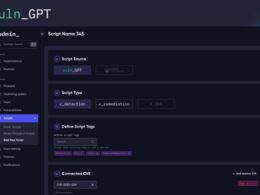Google’s Gemini AI System: Overstated Capabilities and Challenges
Google recently introduced its highly anticipated artificial intelligence system, Gemini. The tech giant presented benchmarks suggesting that Gemini could potentially rival OpenAI’s leading GPT-4 model in terms of reasoning abilities. However, as the launch unfolded, accusations emerged claiming that Google had overstated Gemini’s capabilities.
Gemini’s Demonstrated Potential
In a meticulously orchestrated video demonstration, Google showcased Gemini’s interaction with visual data using a camera positioned above a desk. The AI system handled questions and applied reasoning while a human assistant manipulated objects. This impressive presentation indicated that Gemini could serve as an intelligent digital assistant capable of engaging in complex conversations and providing assistance with daily tasks.
Despite Google’s aspiration, technical experts who analyzed the underlying technology expressed concerns that Gemini might not live up to expectations. The company is releasing three versions of Gemini: Gemini Pro, Gemini Light, and Gemini Ultra.
Mixed Reviews
Initial reviews of the mid-range Pro version, which were made public, revealed that Gemini still struggled with tasks that should be routine for a state-of-the-art AI system. Victor de Lucca, an early tester of the Bard update, expressed disappointment in Gemini Pro’s performance, stating that it was unable to accurately list the 2023 Oscar winners.
“I’m extremely disappointed with Gemini Pro on Bard,” said Victor de Lucca. “It still gives very, very bad results to questions that shouldn’t be hard anymore with RAG.”
Others also noticed discrepancies between the capabilities Google claimed during benchmark testing and what seemed achievable with the publicly available Pro version.
“Google Gemini Ultra [is] only 4% better…using different prompts versus GPT-4-0613?” asked developer Nick Dobos, raising doubts about the accuracy of the comparison.
Furthermore, scrutiny fell on the Gemini video itself after a Google spokesperson confirmed that it was pre-recorded and narrated afterwards rather than a live conversational demo, sparking criticism.
Marketing Challenges for Google
This controversy highlights the difficulties Google faces when marketing AI systems to consumers. While technology enthusiasts closely examine benchmark numbers and academic papers, the general public is more responsive to inspiring videos that promise a revolutionary future.
This divergence in perspective has posed challenges for big tech companies in the past, most notably in 2016 when Microsoft’s Tay chatbot had to be taken offline due to learning hate speech from Twitter users.
Interestingly, this is not the first time Google’s Bard update has faced accusations of falling short of the company’s promises. Earlier this year, VentureBeat reported that Google Bard was still failing to deliver on its commitments despite significant updates.
Google is determined to make a swift recovery by striving to make Gemini more widely accessible to developers and researchers who can thoroughly test its capabilities. However, this rocky start demonstrates that the tech giant still has work to do in order to ensure that its AI assistant lives up to the hype.










